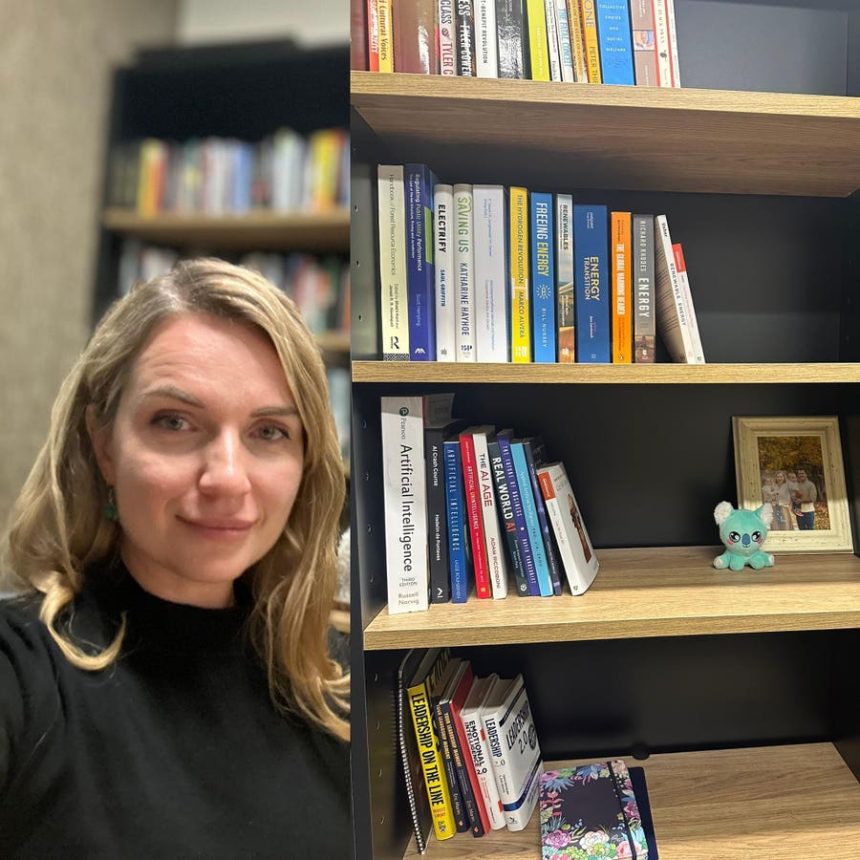Climate Solutions and a Hopeful Future:
The year 2024 has witnessed the emergence of compelling literary works focused on climate change, sustainability, and energy transition, with several penned by influential women authors. Hannah Ritchie’s "Not the End of the World" stands out as a beacon of pragmatic optimism, offering data-driven perspectives on environmental progress. Ritchie, a data scientist and deputy editor at Our World in Data, challenges prevalent doomsday narratives by highlighting positive trends in air quality, deforestation rates, and agricultural yields. Her analysis suggests a likely warming scenario below 3°C, contrary to more dire predictions. She advocates for embracing innovative solutions like lab-grown meat and nuclear energy, emphasizing the potential for individual contributions to a sustainable future. Ayana Elizabeth Johnson’s "What If We Get It Right?" complements Ritchie’s optimistic outlook with a more personal and artistic exploration of climate futures. Through essays, interviews, poetry, and art, Johnson weaves a narrative of hope, drawing on her experience as a marine biologist and her deep connection with the natural world. Her "Climate Oath," inspired by the Hippocratic Oath, calls for a commitment to environmental stewardship, resonating with both our rational and emotional responses to the climate crisis.
National Security and Solar Finance:
The intersection of climate change and national security takes center stage in Sherri Goodman’s "Threat Multiplier." Goodman, the first Deputy Undersecretary of Defense for Environmental Security, introduces the concept of climate change as a "threat multiplier," exacerbating existing security risks. The book provides compelling examples of how climate-induced changes, such as melting Arctic ice and droughts in vulnerable regions, can escalate geopolitical tensions and resource conflicts. Goodman’s work highlights the growing recognition within the military establishment of climate change as a critical security concern. Shifting from geopolitical strategy to the financial intricacies of renewable energy, Jenny Chase’s second edition of "Solar Power Finance Without the Jargon" offers a clear and concise guide to the solar industry. Chase traces the evolution of photovoltaics from its early beginnings to the present day, providing valuable insights into the industry’s financial landscape and developmental challenges. While the book aims for accessibility, some familiarity with financial terminology may enhance comprehension for newcomers to the field. Chase offers a refreshingly candid perspective, acknowledging the high failure rates and inherent challenges faced by renewable energy startups.
Humanity’s Relationship with Nature and Food:
Nicola Twilley’s "Frostbite" delves into the transformative impact of refrigeration on our food systems, planet, and even our cultural perceptions. Twilley takes readers on a captivating journey through the history of food preservation, from the ancient luxury of ice to the initial skepticism surrounding modern refrigeration. The book explores how refrigeration revolutionized food access, reduced waste, and expanded dietary diversity, showcasing a technology that has become so ubiquitous as to be almost invisible. In stark contrast, Elizabeth Kolbert’s "The Sixth Extinction," now in its 10th edition, reminds us of the devastating consequences of human activity on biodiversity. Kolbert traces the history of extinction events, highlighting the alarming rate at which species are disappearing in our time. She argues convincingly that we are amidst a sixth mass extinction, driven by human-induced climate change and habitat destruction. The book serves as a stark reminder of the fragility of the natural world and the urgent need for conservation efforts.
Sustainable Living, Community Resilience, and Climate Anxiety:
Robin Wall Kimmerer’s "The Serviceberry" explores the concept of reciprocity in nature and human societies, drawing inspiration from the serviceberry tree and Indigenous wisdom. Kimmerer, known for her acclaimed work "Braiding Sweetgrass," argues for an economic model based on gift-giving and mutual support, contrasting it with the individualistic nature of market-driven economies. She observes how gift economies often emerge during times of crisis, suggesting an inherent human capacity for cooperation and resource sharing. Addressing the emotional toll of climate change, Kate Schapira’s "Lessons from the Climate Anxiety Counseling Booth" offers practical strategies for coping with eco-anxiety and fostering community resilience. Schapira draws on her experience with the Climate Anxiety Counseling Booth project, providing exercises and insights to help individuals navigate their climate-related fears. She emphasizes the importance of mutual aid networks and "place connection," encouraging readers to engage with their local environments and contribute to community-based solutions. The book operates under the premise that climate change is intrinsically linked to capitalism and white supremacy, influencing the proposed solutions and framework.
Navigating the Political Landscape of Climate Action:
Chelsea Henderson’s "Glacial" provides an insider’s perspective on the intricate political landscape of climate policy in the United States. The book chronicles decades of legislative battles, revealing the behind-the-scenes power struggles and vested interests that have hampered progress on climate action. Henderson examines presidential approaches to climate change, from Lyndon Johnson to Joe Biden, highlighting both successes and setbacks in the struggle for effective climate legislation. Complementing Henderson’s analysis, Genevieve Guenther’s "The Language of Climate Politics" dissects the rhetoric surrounding climate change, exposing the pervasive influence of fossil fuel industry propaganda. Guenther argues that the repetition of industry talking points across the political spectrum creates a false sense of consensus that perpetuates inaction. She offers strategies for reframing the climate narrative, emphasizing the importance of intergenerational responsibility and challenging conventional economic arguments that prioritize short-term gains over long-term sustainability.
Inspiring the Next Generation:
Beyond the realm of academic and political discourse, two bonus titles cater to younger audiences, fostering environmental awareness and promoting STEM careers for girls. Nicole Kelner’s "Electrify Your Home" coloring book engages children with the possibilities of a clean energy future through vibrant illustrations of renewable energy technologies. "Energy Superheroes: Women in Energy Careers" introduces girls to a diverse range of female role models working in the energy sector, encouraging them to envision themselves in STEM professions. These books represent a crucial effort to inspire the next generation of climate leaders and innovators.



